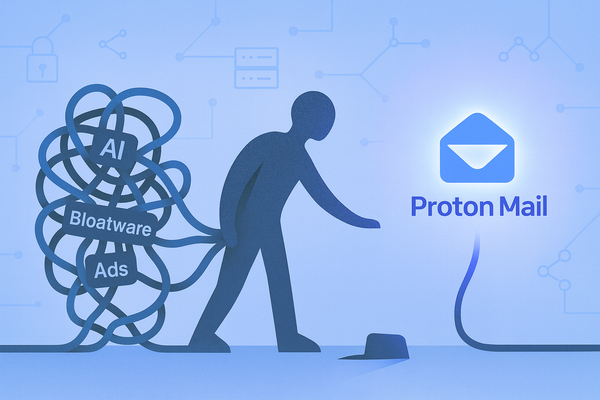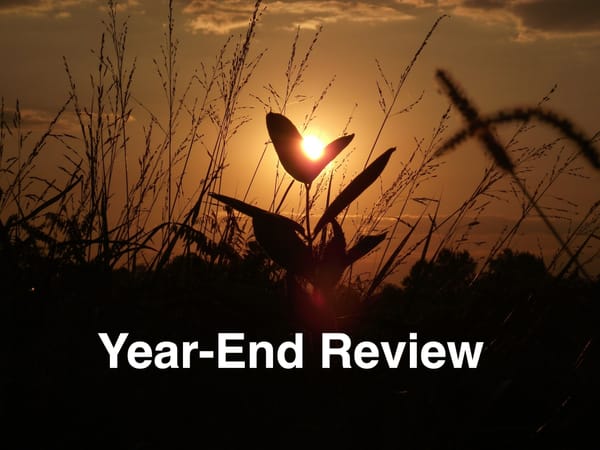Is Being a Clinical Research Consultant Right for You?
A detailed look into starting a clinical research consulting business with example services, advantages, and disadvantages.

Have you ever dreamed of being your own boss?
How about escaping the rat race?
What about setting your own hours?
If these advantages appeal to you, you have probably heard the term "consulting." But what actually is consulting in clinical research? Is it something for you?
This article will:
- Describe consulting
- Provide examples of clinical research consulting services
- Outline the advantages and disadvantages of running a clinical research consulting business
What is Consulting?
Can you add value to a person or a business that they are willing to pay for?
That is essentially what consulting is. You are your own boss, running your own company. You have many customers or clients, not just one. You have something of value that they want (usually a skill), that they are willing to pay you for.
Consulting work is what you do as a consultant. These are the skills that you use to solve problems for your clients and customers.
What are examples of Consulting in Clinical Research?
- ✍️ Medical Writing — Offering writing services such as copywriting, content writing, protocol writing, informed consent writing, clinical study report writing, and writing publications for clinical trials.
- 💻 Biostatistics — Offering support in the planning and data analysis for clinical trials.
- 🥼 Clinical Research Associate — Offering monitoring and other clinical operations support for clinical trials.
What are the Benefits of Consulting Work?
There are a large number of reasons that draw people to consulting work.
Some of them are real and some of them are romanticized.
Set your Own Schedule 📆
Sometimes you hear about the romanticized version of consulting where you can set your own schedule.
Sleep in until 10am.
Work a little bit.
Be done work in time for when your kids get home from school.
Certainly is it true that consulting allows you to set your own schedule. When you don't have a boss to check-in with there is freedom in that. But there is more to the picture.
When meeting with clients or customers in person or over the phone you need to accommodate their schedule. This generally means between business hours (9-5) if you are working with clients and could be after business hours if you are working with customers.
For example, a clinical research associate needs to meet with site personnel when they are available, generally during regular business hours. A medical writer could have a more flexible schedule and meet with clients before, during, or after regular business hours.
Another thing to keep in mind is timezones. If your clinical research consulting business is remote, you could be doing business in many different time zones. If you are on the east coast in North America and doing business in the pacific time zone, keep in mind the 3 hour time difference. Their after business hours may be at the time you are normally in bed!
Likewise if you are on the pacific coast and a client wants to meet at 8am, that is your 5am.
In addition to clients dictating your schedule, your personal life will to. If you have to be up at 6am to get the kids ready for the bus, it doesn't matter if you have a consulting business or a job. You still have to be up.
Also think about the schedule of your romantic partner or friends. You don't want to sleep all day and work all night if they work the standard 9-5 schedule. You would never see them.
When you run your clinical research consulting business, you will likely fall into a rhythm that matches your clients/customers and those in your personal life. However, the time that you allocate to work (for example 10-4pm) will have a lot more flexibility. You can take a long lunch or leave work early to spend time with friend.
That is the reality of a consultant's schedule.
Diversity of Risk 📉
One of the biggest benefits of consulting work is the diversity of risk.
When you have a job, you have one source of income. If the company you work for has a bad year or a bad quarter, you could be laid off with only 2 weeks notice. There is huge risk in that.
It happens all the time where someone loses their job unexpectedly, then takes months to find another one. Their severance pay runs out, and they have to dip into their savings—or worse, borrow money on credit.
This puts huge emotional and financial stress on families.
Worse still, is that even when you find a new job the cycle ran repeat. Work for 2 years, get laid off, spend six months finding a job. Then work another year or two before getting laid off again.
If you have multiple clients that each make up a portion of your income the situation is much less risky.
For example, if you have 10 clients and you lose 1 client, you only lose 10% of your income, not 100%. It should take a lot less time to go from 90% of income to 100% of income compared to 0% to 100%. And while you look to replace the lost business you still have significant amount of income coming in.
The risk to your finances and emotions is far less when you have a clinical research consulting business.
You Decide what to Work On 💼
If you are considering starting a clinical research business, chances are you feel unfulfilled in your current job situation.
This is pretty common. We have all had tasks to do that were boring, mundane, or felt like an enormous waste of time. When you run your own business you get to decide what you want to work on.
Chances are that if it is a skill you posses that you started your business around, that you will be more fulfilled than your current job situation.
You can also choose to work on particular projects that interest you. If you want to be a clinical research associate that focuses on oncology you can. Or if you want to do copywriting for biotech startups, go for it.
You have the freedom to decide what to focus on.
You Decide Who you Work With 🧑⚕️
Similarly, you get to decide who to work with.
This comes in the form of vetting clients. You don't have to work with everyone who contacts you. If a particular client or customer is giving off red flags, it is usually not worth the headache to work with them.
I had the freedom to say thank you but no thank you.
You Set the Price 🤑
Have you ever felt underpaid at your job?
Usually that is accompanied by overwork!
With a clinical research consulting business you have more freedom to set your pricing. Of course, you have to follow a pricing model that reflects the value that you offer and what the market will bear, but there is a lot of play here.
Here is an example of the power of setting your own price.
Let's say you are a copywriter for a marketing agency. You are working on a piece for a local biotech company. Hypothetically you might make ~$25 per hour, but you employer may be making $100 per hour from your labour. If you were consulting, you could set your price close to or higher than $100 per hour (depending on the value that you offer), taking home much more money.
This is even more powerful when you combine setting your price with setting your schedule.
Here's how it works.
First, decide how much money per year you want to take home as salary doing clinical research consulting. Let's say $100,000. Next estimate your expenses your business expenses. For this example we will assume ~$10,000 to run an online service business. So your business needs to make $110,000 for you to have your desired salary.
Now you can estimate the hours you need to work for your desired salary. Let's assume you charge $80 per hour. So $110,000 / $80 is 1,375 billable hours per year, or 115 billable hours per month, or 27.5 billable hours per week! This assumes 50 working weeks in a year (two weeks off for you).
You can look at this in reverse too. Decide how many hours per week you want to work. For this example I will say 15. So 15 hours per week * 50 weeks (assuming 2 weeks of vacation) is 750 hours per year. To get $110,000 per year, you would need to bill ~$150 per hour. Of course, you need to be able solve a problem for potential clients worth $150 per hour for them!
What are the Downsides of Consulting Work?
Despite all the advantages outlined above, you should be aware that there are several downsides of consulting.
Difficult to Get Started 📈
The difficulty of just getting started is likely one of the first doubts creeping into your mind.
I won't sugar coat it. Getting started is hard, but a lot of things that are worth doing are hard, at least at first.
How many of these doubts are in your mind right now?
How do I even get started? First, you need to find something of value that you can offer to others that they are willing to pay for.
How do I figure out what I can offer? Think about what other people say you are good at. Think about something that you think you are good at. Think about something that comes naturally to you. Make a list of all these things. Look at the list and see if there are any that people would pay you for.
How do I find clients? To get the first few clients you need to hustle. Your biggest obstacle is discoverability. No one knows who you are or what you can do. No one is looking for you, you need to find them. If your target clients are local, go to local networking events where you can meet them. If they are not local cold email or cold call. Don't spam people, but craft a professional email (or calling script) describing the problem of theirs that you can solve.
It is hard to find the first few clients, but I promise it gets easier once you get the ball rolling. If you do a good job, people will happily refer you to others that could benefit from your services.
Other questions don't matter yet. Until you figure out what value you can offer and if there are clients willing to pay for it, other things in your clinical research business don't matter. There are things like your website, business name, logo, etc. A nice logo doesn't matter if you offer no value to clients.
You only Make Money when you Work 🏢
This is especially true if your business exchanges time for money (as it probably will). A medical writer only gets paid when they are writing. A clinical research associate only gets paid when they are doing monitoring activities.
This is relevant to how much time you want to take off in a given year. Factor in that if you want to be on vacation 6 weeks out of the year and not working, you won't be getting paid either!
It is Hard to Actually be On Vacation 🌄
Many—if not all—small business owner experiences this to come degree.
It is hard to completely turn off work, especially if you don't have any staff that can take over for what you do. Even when you are on vacation, you may field client calls, answer email, or sometimes work on a project.
You Must Save for your Own Retirement 🧑🦳
With your consulting business, there is no pension.
With many jobs you have to do this anyway, but you must diligently save for retirement when you run your clinical research consulting business. How much? A good target is to save 25% of your income for retirement. This of course will depend on your current savings and working years left.
Summary
Don't be discouraged by the drawbacks of starting clinical research consulting.
The benefits definitely outweigh them, but you have to hustle. It is difficult a lot of the time, but when you find success it is all worth it.
Just remember that you have to put in the work to reap the rewards.
If you found this information useful, please consider sharing. If you want more of this content, please consider subscribing. If you have insights of your own please consider reaching out to me. Get in touch!




